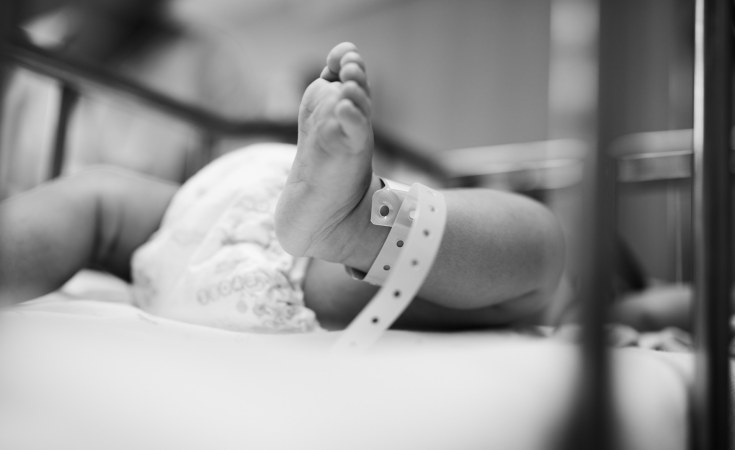Four Croatian couples are on trial in Zambia for attempted child trafficking after authorities found their child adoption papers to be fake. Their case has put a spotlight on foreign child adoption in Africa.
It should have been a dream come true for Damir M and his wife, Nadica. Subosic Z and his wife, Azra. Ladislav P and his wife, Aleksandr, and Noah K and his wife, Ivona. The four Croatian couples had finally adopted their children from the Democratic Republic of Congo, or so they believed.
But before they could board a flight to Croatia, Zambian authorities detained the four spouses claiming that the children's adoption papers were falsified. They now facechild traffickingcharges.
Since December 2020, the Croatians have spent at least a month in detention and were only recently granted bail by a Zambian court.
DW reached out to the Zambian Immigration Department, the Ministry of Community Development's Social Welfare, which currently has custody of the children, and the Congolese embassy. However, none of the institutions were willing to comment on the case.
EU closely following the case
The European Union Delegation Office in Zambia told DW that it had been closely monitoring the case, especially since Croatia -- an EU member -- does not have an embassy in Zambia.
"As an institution, we are interested in this case because it involves citizens from a European country," Elias Banda, the EU Delegation in Zambia Press and Information officer, said.
"In this particular case, the Croatians did not contact any member state. Instead, they decided to contact their own government, [which is] represented by an embassy in Pretoria, [which has ] been in constant touch with these people," Banda said.
Discourse about foreign adoptions
The case has re-ignited the old debate about child adoptions in Africa involving western nationals. Critics argue that, in some cases, the practice has facilitated child trafficking. At the same time, those in support believe that adoptions help reduce the burden of feeding, clothing, and sheltering orphaned kids in institutions and families that struggle to raise their children due to poverty.
"Lately, there's been a lot of [human] trafficking cases that have been intercepted by the police, especially enroute to other countries," Josphat Njovu, Executive Director of Advocacy for Child Justice in Zambia, told DW.
Call to strengthen laws
"It's a concern that we have as a country and also civil society organizations," Njovu said, stressing that Zambia must strengthen the laws and policies surrounding child trafficking and human trafficking.
"What we've experienced is weak border controls in some borders and some countries, and this gives opportunities to unregistered children or human beings to pass."
In 2014, the Kenyan government enacted a 20 years moratorium on intercountry adoptions, citing, among other reasons, concerns over the existing loopholes in adoption laws of local children by foreigners.
Reviewing adoption processes
The government went on to revoke the licenses of adoption agencies.
At the time, a review of the adoption process by the Technical Assessment of the Legal Provisions and Practices of Guardianship, Foster Care and Adoption of children by the government of Kenya and the UN children agency, Unicef, showed that there were weaknesses in the legal process, which was subject to manipulation leading to commercialization of adoptions. That, critics feared, put adopted children at risk of exploitation.
South Africa once equally had a ban on international adoptions. However, it later lifted it after establishing a proper legal framework in which they could trace the movement of adopters. With that kind of framework, it would be easy to monitor the well-being of the children after adoption.
Carrying out due diligence
In Zambia, all adoptions must go through an elaborate process involving more than one government organization to ensure due diligence.
"The process commences with the Ministry of Community Development," Lisuba Kabanda, a representative from the Ministry of Home Affairs, said.
"They are the ones who receive the application or the intention by a family to adopt a child, they asses that family, to ensure that the family [is] able to take good care of that child."
Kabanda said once they are satisfied that the family is qualified to adopt that child, the case is taken to court for an adoption to be granted.
"Then the Ministry of Community Development, compiles the documentation, together with the adoption, that is what is given to our department for registration, for us to now issue an adoption certificate, together with an abridged birth certificate," Kabanda said.


